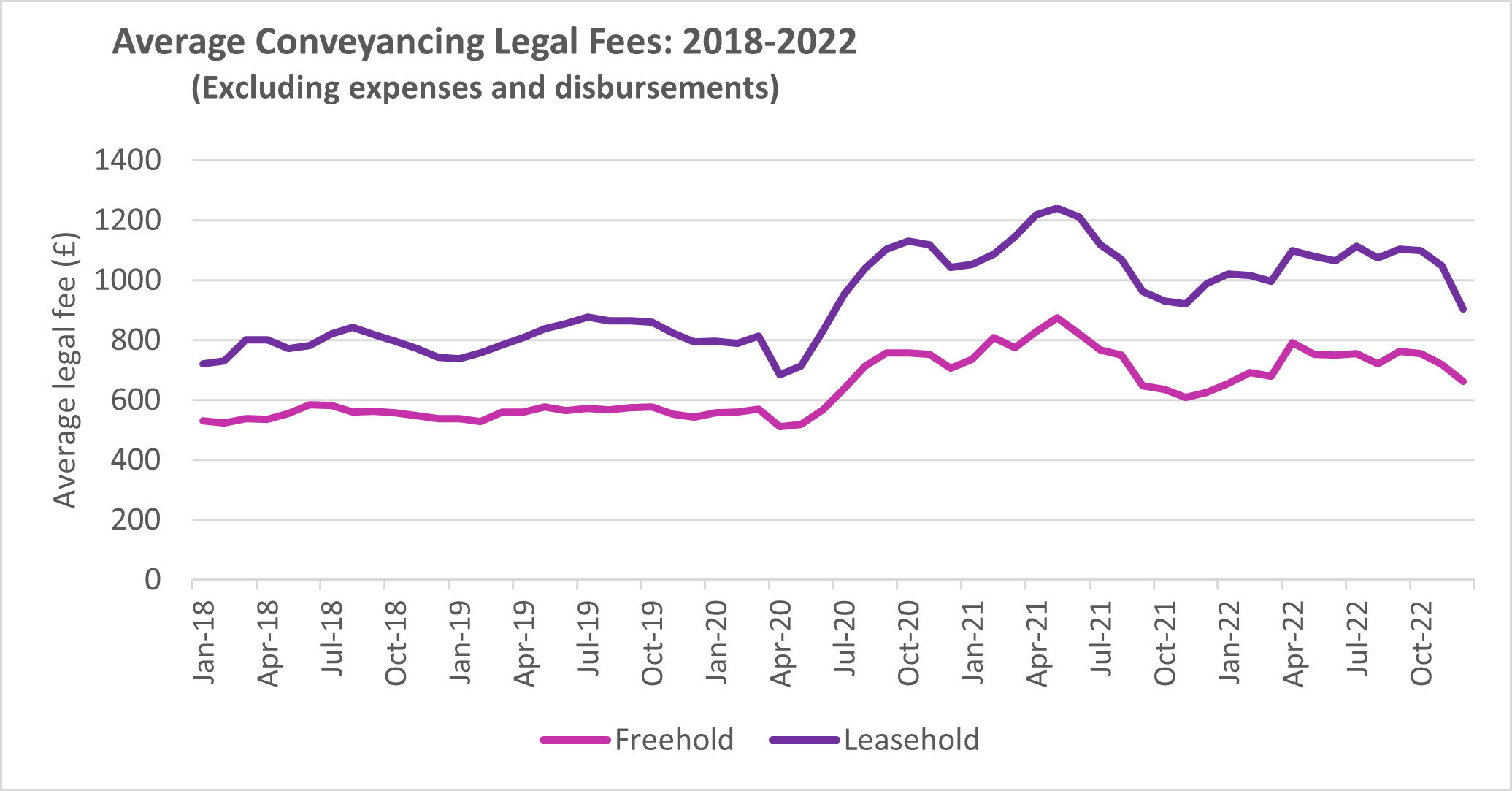SPECIAL FEATURE: Differentiate on service as conveyancing prices fall back – reallymoving
SPECIAL FEATURE: Rob Houghton of reallymoving has written an article that looks at differentiation on service as conveyancing prices fall back.
The outlook for the conveyancing sector this new year is certainly different to what we’ve become used to since the pandemic ‘race for space’ sent the property market into extended overdrive. The industry showed it can function under incredible pressure, expand rapidly and innovate to keep people moving, but leaner times are ahead and it will need to adapt once again. So, what does that mean for pricing?
Covid conveyancing price gains have declined
We’ve analysed data from over 1.64 million conveyancing quotes on reallymoving between January 2018 and December 2022 and the pattern is pretty clear. We can see pricing stability pre-Covid, a notable dip during lockdown as the property market ground to a standstill and demand dried up, then a surge in pricing driven by the start of the Stamp Duty holiday when demand really took off, staying high for several months and peaking in May 2021.
At that point, excluding expenses and disbursements, customers were paying £1,240 for conveyancing on a leasehold property compared to £683 in April 2020 (+82%) and £874 for conveyancing on a freehold property versus £510 in April 2020 (+72%). That’s quite a jump, driven purely by a sharp and sustained rise in demand that conveyancing professionals (many of whom were still working from home) did their best to meet.
What’s happening to prices now?
When the stamp duty holiday ended prices fell back, then picked up again to more stable levels for most of 2022. Now we’re seeing clear evidence of a decline as firms compete to retain customers during the current market slowdown.
Freehold vs Leasehold pricing
Analysis of our data, based on conveyancing quotes for property priced between £125,000 and £200,000, shows a significant difference in legal fees for a freehold versus leasehold sale. Averaged across the regions, at £884 the UK average legal bill for a leasehold sale is 67% higher than fees for handling a freehold sale at £530. For purchases, the difference is even greater at 74% (£924 for a leasehold versus £532 for freehold).
Regional differences are also quite stark. The most expensive region is London, where conveyancing fees are 18% above the UK average for a sale and 20% above for a purchase. In the East Midlands, the region with the lowest fees, they’re around 6% less than average.
Differentiating on service
In a slow market, the temptation will aways be to compete on price alone but while important, it’s not the only – or even the most important – factor for customers. Our research shows that the majority of homebuyers and sellers using reallymoving, representing around a tenth of the total market, don’t choose the cheapest firm. In fact, 60% opt for a more expensive option and 10% choose a conveyancer at the top end of the price scale.
So, how can else conveyancers differentiate themselves to compete successfully? Service is absolutely critical and the proliferation of online reviews in our sector, like every other, means customers now have much more to go on when choosing a provider. Transparency in price goes hand in hand with transparency in service, empowering them to make an informed choice. For businesses, good reviews help build trust, contributing positively to the reputation and brand.
Things can go wrong, of course, and negative reviews are not just unpleasant to receive but potentially harmful. By nature, conveyancing is complex and, on occasion contentious. Many things can fail to turn out the way the customer wants, whether it’s the discovery of subsidence, an issue with a lease or missing documents relating to alterations. A customer’s overall impression can be impacted negatively by factors beyond the conveyancer’s control – and that may discourage firms from taking on more complex or contentious cases.
But the occasional bad review, among many positive ones, is unlikely to cause serious damage to your reputation or capacity to win work, and the power of overwhelmingly positive feedback online can’t be underestimated when it comes to converting leads into clients and standing out from your competitors – even if they beat you on price. A negative review which is responded to honestly and sympathetically can have a net positive impact – everyone knows that property transactions go wrong sometimes and conveyancers often get the blame, whether fairly or not.
Embracing technology
The other key differential is technology. Many conveyancers are now using portals and case management systems of some kind or another which show customers exactly what’s happening in their transaction, ticking off the various stages as they are completed and alerting customers via email or text message. Yet many firms are worryingly behind the curve, despite the existence of conveyancing software that would significantly ease the burden.
Just one legal firm in a chain of several who has held out against the tech tidal wave is likely to cause delays, even when all the others have invested in tech and are using it effectively. A busy conveyancing team could save weeks of time over the course of a year through increased efficiency and accuracy. It’s what clients now expect and if a firm can’t show customers they’re tech savvy, they’re likely to lose out.
Capitalising on shifting conditions
After two years of extraordinary housing market activity which left many conveyancing professionals stressed out and overworked, without a doubt we’re now entering a new phase. But the next twelve months will present a clear opportunity for practices to separate themselves from the competition and build their market share.
The price slide has already begun, but to chase prices back down to pre-Covid levels, even when adjusted for inflation, would be unsustainable long-term. Adapting to market conditions and investing in relationships will be critical in building a consumer-friendly, service-driven marketplace can continue to thrive through the lows as well as the highs.

Rob Houghton
Written by Rob Houghton, founder and CEO of reallymoving.
Kindly shared by reallymoving
Main article photo courtesy of Pixabay

















